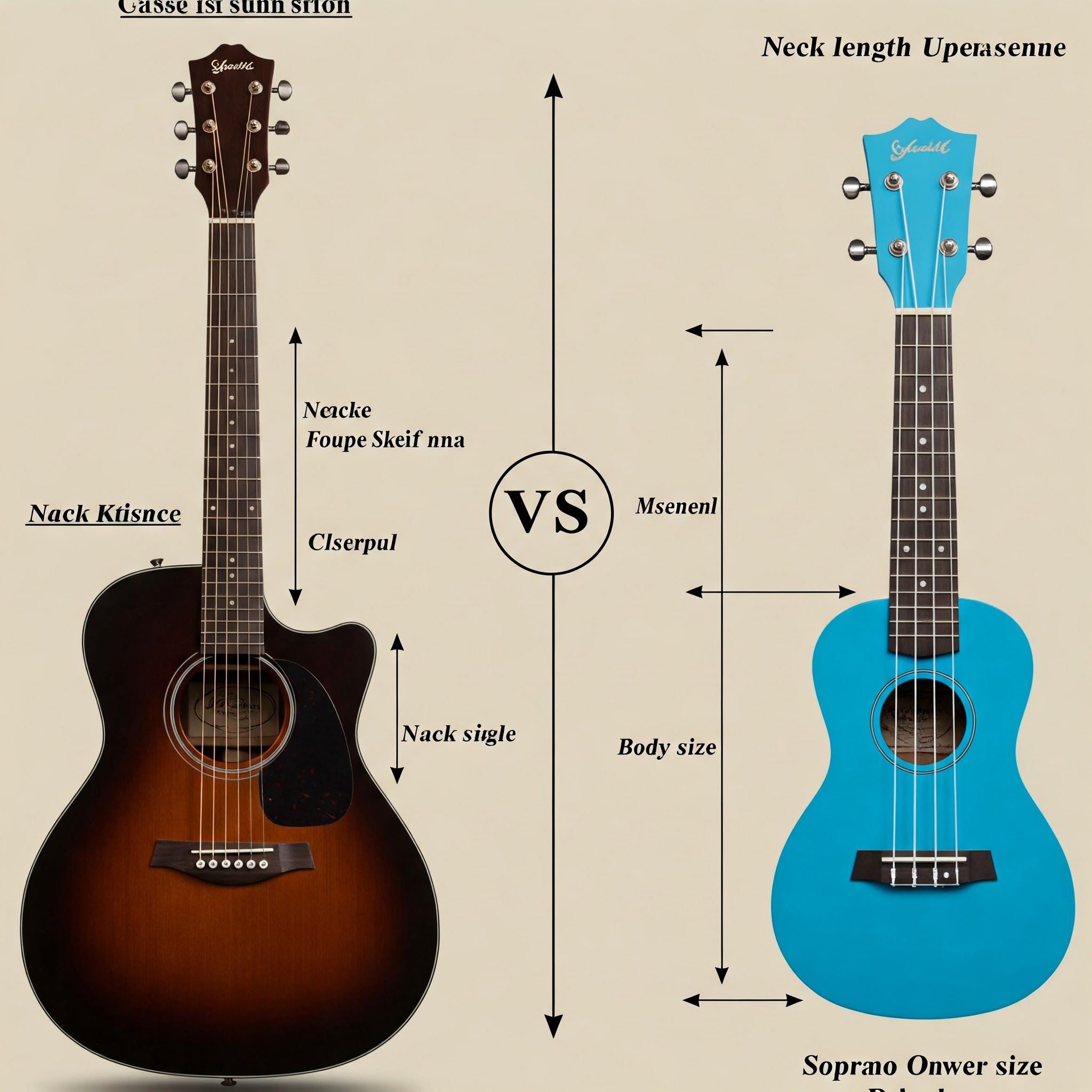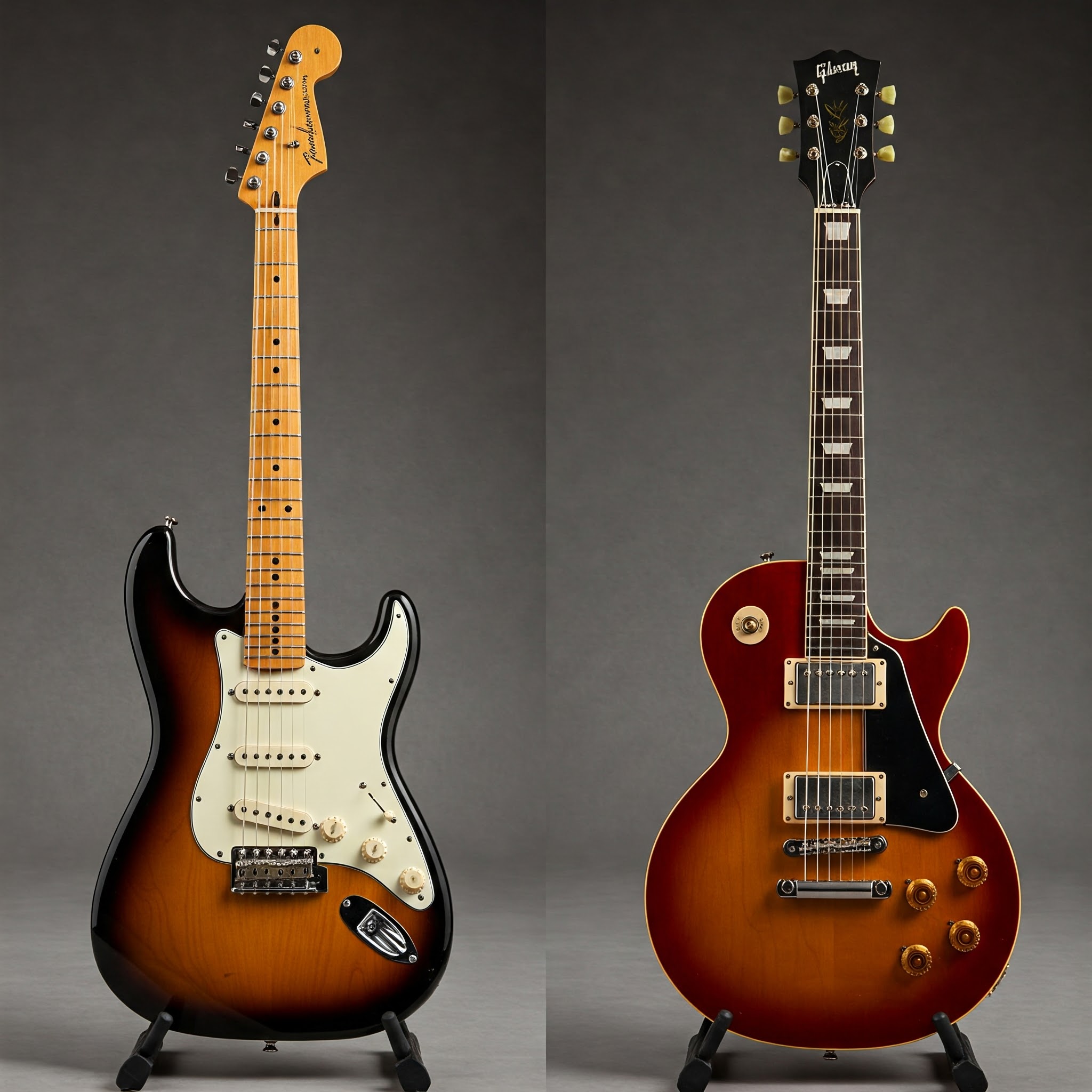The Heart of Your Guitar’s Voice 🎸
When it comes to electric guitars, few components have as dramatic an impact on your sound as pickups. The ongoing debate of single coil vs humbucker pickups represents more than just a technical choice—it’s about finding your unique voice as a musician. As someone who has spent countless hours experimenting with different pickup configurations, I can tell you that understanding these differences is crucial for any guitarist looking to define their signature sound.
Whether you’re chasing the crisp, bright attack of a classic Stratocaster or the thick, powerful roar of a Les Paul, the pickup configuration you choose will fundamentally shape your musical expression. In this comprehensive guide, we’ll explore everything you need to know about single coil vs humbucker pickups, from their technical differences to their practical applications across musical genres.
By the end of this article, you’ll have all the information you need to make an informed decision about which pickup type aligns with your playing style and tonal preferences. Let’s dive into the fascinating world of guitar pickups and uncover which option might be your perfect sonic partner.
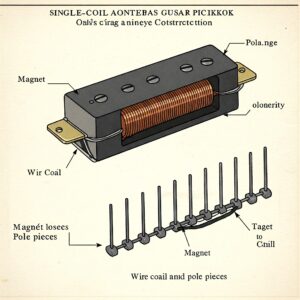
The Fundamental Differences: Single Coil vs Humbucker Pickups Explained 🔍
What Are Single Coil Pickups?
✅ Single coil pickups are exactly what their name suggests: a single coil of wire wrapped around magnetic pole pieces. This straightforward design was one of the earliest pickup types, pioneered by Leo Fender in the 1950s.
The simplicity of single coils gives them several distinctive characteristics. They typically offer a bright, clear tone with excellent articulation and detail. When you hear that iconic “quack” from position 2 or 4 on a Stratocaster, you’re experiencing the unique voice of single coils.
However, their simple design comes with a notable drawback—they’re susceptible to electromagnetic interference, which manifests as an audible hum or buzz, particularly when playing near electronic devices or under fluorescent lighting.
What Are Humbucker Pickups?
✅ Humbucker pickups were invented in 1955 by Seth Lover at Gibson as a solution to the noise issues inherent in single coils. A humbucker consists of two coils wired together in a way that cancels out (or “bucks”) the hum—hence the name.
This dual-coil design not only reduces noise but also fundamentally alters the tonal characteristics. Humbuckers generally produce a thicker, warmer sound with greater output and midrange emphasis. They excel at delivering rich, sustaining tones, particularly when pushed into overdrive or distortion.
The trade-off for this noise-free operation and increased output is somewhat reduced high-end definition and dynamics compared to single coils.
According to a study published in the Journal of the Acoustical Society of America, the frequency response curves of single coils show a pronounced peak in the higher frequencies, while humbuckers exhibit a more balanced response with greater midrange presence.
Technical Characteristics: Breaking Down the Differences ⚙️
| Characteristic | Single Coil Pickups | Humbucker Pickups |
|---|---|---|
| Design | One coil of wire around magnets | Two coils wired together |
| Noise Level | Higher (susceptible to interference) | Lower (hum-canceling design) |
| Output | Lower output | Higher output |
| Tone | Bright, clear, crisp | Warm, thick, rounded |
| Frequency Response | Strong highs, scooped mids | Prominent mids, smoother highs |
| Dynamics | More dynamic, responsive | Slightly compressed |
| Physical Size | Narrower | Wider |
The Science Behind the Sound
The tonal differences between these pickup types stem from their physical construction. A research paper from the Department of Physics at the University of Illinois explains that the wider frequency capture of humbuckers results from the combination of two slightly offset coils, creating a phase relationship that enhances certain frequencies while reducing others.
Additionally, the magnetic field generated by single coils tends to be more focused, which contributes to their characteristic clarity and definition. In contrast, humbuckers create a broader magnetic field that captures a wider string vibration profile, resulting in a fuller sound.
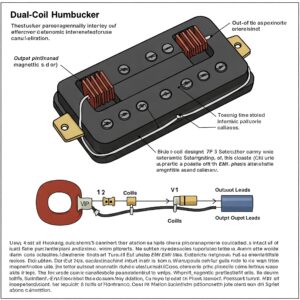
Tonal Characteristics: How They Actually Sound 🎵
Single Coil Sound Profile
✅ Single coil pickups deliver:
- Bright, sparkling high-end response
- Excellent clarity and note definition
- “Quacky” or “chimey” tones in certain positions
- A more “open” and airy sound
- Greater dynamic response to picking technique
- Enhanced ability to cut through a dense mix
❌ Single coil limitations:
- Susceptible to noise and interference
- Can sound thin in some contexts
- Less output for driving amps into distortion
- May lack warmth for certain styles
Humbucker Sound Profile
✅ Humbucker pickups deliver:
- Warmer, fuller tones with emphasized midrange
- Higher output for natural amp overdrive
- Excellent sustain and singing qualities
- Reduced noise and interference
- Rich, thick distortion characteristics
- Smooth jazz tones when played clean
❌ Humbucker limitations:
- Can lack the clarity and definition of single coils
- May sound muddy with excessive distortion
- Less articulation for complex chords
- Reduced “quack” and “chime” characteristics
According to the renowned pickup manufacturer Seymour Duncan, “Single coils slice through a mix with their focused midrange and airy highs, while humbuckers fill a sonic space with their robust mids and smooth highs.”
Musical Genres: Which Pickup Excels Where? 🎭
Single Coil Friendly Genres
Single coil pickups have historically been associated with:
- Country & Western: The twang and clarity of single coils perfectly complement chicken pickin’ and country leads.
- Surf Rock: The bright, reverb-drenched tones of surf guitar rely heavily on the distinctive character of single coils.
- Blues: The expressive, dynamic nature of single coils allows for nuanced blues playing.
- Funk: The percussive, snappy quality makes single coils ideal for funk rhythm work.
- Alternative/Indie Rock: Many indie guitarists prefer the unique character and clarity of single coils.
Humbucker Friendly Genres
Humbuckers have traditionally been the pickup of choice for:
- Hard Rock & Heavy Metal: The higher output and thicker sound drive amps harder for distortion.
- Jazz: The warm, smooth tone complements jazz chording and soloing.
- Blues Rock: Creamier, sustaining leads benefit from humbucker characteristics.
- Classic Rock: The iconic sounds of Led Zeppelin, AC/DC, and other classic rock bands feature humbuckers prominently.
- Progressive Rock: The sustain and clarity under high gain makes humbuckers valuable for complex prog passages.
The Musician’s Institute Guitar Department notes that “While these associations exist, many artists deliberately choose to play ‘against type’ for their genre, creating distinctive sounds by using unexpected pickup configurations.”
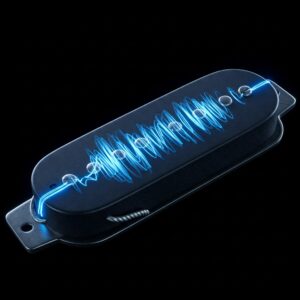
Famous Players and Their Pickup Preferences 🌟
Iconic Single Coil Players
- Jimi Hendrix: Revolutionized electric guitar playing using the single coils in his Stratocaster.
- Eric Johnson: Known for his incredibly nuanced tone, largely built around single coil pickups.
- Mark Knopfler: His fingerstyle technique and signature sound are inseparable from single coil pickups.
- David Gilmour: Created Pink Floyd’s atmospheric soundscapes primarily with single coil-equipped Stratocasters.
- John Mayer: Despite using various guitars, his most recognizable tones come from single coil Stratocasters.
Legendary Humbucker Users
- Jimmy Page: The Led Zeppelin guitarist’s Les Paul with humbuckers defined the sound of hard rock.
- Slash: His thick, singing lead tone comes from the humbuckers in his Les Paul.
- Carlos Santana: The sustaining, vocal-like quality of his solos relies on humbucker pickups.
- BB King: His “Lucille” Gibson with humbuckers created one of the most recognizable blues tones.
- Eddie Van Halen: While he used custom configurations, humbuckers were essential to his revolutionary sound.
Practical Considerations: Beyond the Tone 🛠️
Installation and Compatibility
When considering a switch between single coil vs humbucker pickups, it’s important to understand the physical differences. Humbuckers require a larger cavity in the guitar body than single coils. This means that installing a humbucker in a guitar designed for single coils (or vice versa) may require routing the body—a permanent modification.
However, there are several solutions for those wanting to experiment:
- Humbucker-Sized Single Coils: These provide single coil tones in a humbucker-sized housing.
- Single Coil-Sized Humbuckers: Often called “rail” pickups, these fit in single coil routes but offer humbucker-like tones.
- Coil-Splitting Humbuckers: These feature a switch that lets you use only one coil, approximating a single coil sound.
Cost Considerations
There can be significant price differences between pickup types:
- Entry-Level Single Coils: $30-80 per pickup
- Boutique Single Coils: $80-200+ per pickup
- Standard Humbuckers: $60-120 per pickup
- Premium Humbuckers: $120-300+ per pickup
According to the Professional Guitar Builders Association, “The price difference typically reflects not just the additional materials in humbuckers, but also the complexity of construction and winding techniques.”
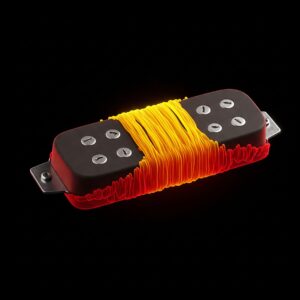
Best of Both Worlds: Hybrid Approaches 🔄
Coil-Splitting and Coil-Tapping
Many modern guitars offer the versatility of coil-splitting or coil-tapping, which allows a humbucker to function as a single coil when desired. This is typically achieved through a push/pull pot or switch that disengages one coil of the humbucker.
While this doesn’t deliver exactly the same tone as a true single coil (due to differences in magnet structure and positioning), it does provide increased versatility from a single instrument.
HSS and HSH Configurations
Popular hybrid configurations include:
- HSS (Humbucker at bridge, Single coils at middle and neck)
- HSH (Humbuckers at bridge and neck, Single coil in middle)
These arrangements aim to provide the best of both worlds: the clarity and chime of single coils along with the power and warmth of humbuckers.
The Fender Custom Shop reports that HSS configuration guitars have become increasingly popular as players seek maximum versatility from a single instrument.
Top Pickup Recommendations for Different Styles 🏆
Premium Single Coil Options
- Fender Custom Shop ’69 Stratocaster Pickups – These meticulously crafted pickups recreate the bright, clear tones of late 1960s Stratocasters with modern consistency.
- Lollar Blonde Pickups – Known for their exceptional clarity and vintage-correct tones with reduced noise compared to vintage originals.
- Seymour Duncan SSL-5 Custom Staggered Single-Coil – A higher output single coil favored by players seeking more midrange and push while maintaining single coil character.
Outstanding Humbucker Choices
- Gibson Custombucker Pickups – These premium PAF-style humbuckers deliver the classic warm tone with perfect balance between vintage character and modern consistency.
- Seymour Duncan SH-55 Seth Lover Model – Created to honor the original humbucker inventor, these pickups offer authentic vintage PAF tones with exceptional clarity.
- DiMarzio Super Distortion Humbucker – A high-output option for players seeking aggressive tones without sacrificing definition.
Hybrid and Specialized Options
- Seymour Duncan JB Jr. – A single coil-sized humbucker offering much of the full-sized JB humbucker’s character in a smaller package.
- Fralin Split Blade Single Coil – A specialized single coil design that eliminates volume drop when bending strings while maintaining classic single coil tone.
- Fishman Fluence Modern Humbucker – These revolutionary active pickups offer multiple voices from vintage to modern with zero noise.
Pickup Comparison Table: At-a-Glance Reference 📊
| Model | Type | Output | Best For | Price Range |
|---|---|---|---|---|
| Fender Pure Vintage ’59 | Single Coil | Vintage (Medium-Low) | Classic Fender tones, blues, country | $$$$ |
| Seymour Duncan SSL-5 | Hot Single Coil | Medium-High | Rock, blues with more push | $$$ |
| DiMarzio Area 67 | Noiseless Single Coil | Medium | Clean tones, recording | $$$$ |
| Gibson ’57 Classic | PAF Humbucker | Medium | Vintage rock, blues, jazz | $$$$ |
| EMG 81 | Active Humbucker | Very High | Metal, hard rock | $$$$ |
| Seymour Duncan P-Rails | Hybrid | Variable | Ultimate versatility | $$$$$ |
→ Transform Your Guitar’s Voice with the Perfect Pickups! 🔊
🎸 Ready to upgrade your tone? The pickups featured above represent the gold standard in their categories. Click any highlighted product to check current pricing and take your playing to the next level today!
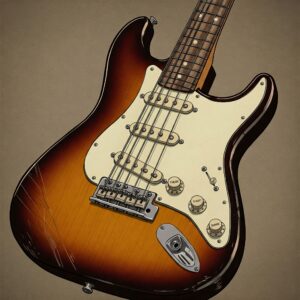
How to Choose: Decision Factors for Your Ideal Pickup 🤔
Consider Your Musical Style
The most important factor in choosing between single coil vs humbucker pickups is the style of music you primarily play:
- If you play mostly country, funk, surf, or need crisp clean tones with excellent articulation, single coils will generally serve you better.
- If your focus is on hard rock, metal, jazz, or styles requiring thicker distortion or warmer clean tones, humbuckers will likely be more appropriate.
Evaluate Your Existing Equipment
Consider how pickups will interact with your current gear:
- Bright amplifiers may pair better with the warmth of humbuckers
- Darker-sounding amps might benefit from the clarity of single coils
- Effects pedals, particularly distortion and overdrive, respond differently to different pickup types
Noise Considerations
If you perform in environments with significant electrical interference, or if you use high-gain distortion regularly, the noise-canceling properties of humbuckers may be a deciding factor.
According to Recording Magazine, “In studio environments, the noise reduction of humbuckers can be invaluable, though modern noiseless single coil designs have narrowed this gap considerably.”
Installation and Maintenance Tips 🔧
DIY or Professional Installation?
While pickup installation is within reach of DIY-minded guitarists, there are several factors to consider:
- Single coils are generally easier to replace like-for-like
- Converting from one pickup type to another may require routing (permanent modification)
- Wiring differences can be complex, particularly with coil-splitting options
- Improper installation can lead to ground hum, phase issues, or non-functioning pickups
The Guitar Electronics Resource Center recommends, “If you’re not comfortable with soldering or lack the proper tools, professional installation typically costs $50-150 and ensures optimal performance.”
Maintenance for Longevity
To maximize the lifespan of your pickups:
- Keep them clean and free from dust and debris
- Avoid exposing your guitar to extreme temperature or humidity changes
- Check for loose connections if you experience intermittent signal
- Consider wax-potting if you experience unwanted feedback (or purchase pre-potted pickups)
The Future of Pickup Technology 🚀
Recent Innovations
The pickup world continues to evolve with several notable innovations:
- Active/Passive Hybrids: Pickups offering both active and passive operation in a single unit.
- Multi-Voice Technology: Digital processing allowing a single pickup to produce various tonal profiles.
- Sustainable Materials: Eco-friendly alternatives to traditional materials without sacrificing tone.
Emerging Trends
According to industry experts at the NAMM Show, several trends are shaping the future of guitar pickups:
- Increasing focus on noise reduction while preserving traditional tones
- Greater versatility within single units (multiple voices)
- Integration with digital modeling and profiling technology
- Customization options allowing players to design their perfect pickup
→ Ready to Find Your Perfect Tone Match? 🎵
🔍 The perfect pickups can completely transform your playing experience! Click on any of the highlighted products to explore options that match your specific style and preferences!
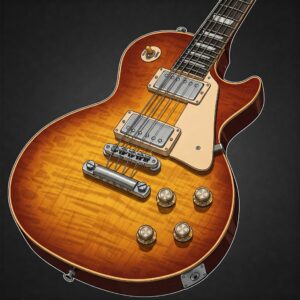
Conclusion: Making Your Final Decision 🏁
The debate between single coil vs humbucker pickups ultimately comes down to your personal preferences, playing style, and the tonal qualities you value most. While single coils offer unmatched clarity, definition, and that characteristic “quack,” humbuckers provide warmth, power, and freedom from noise.
Many experienced players eventually find themselves owning guitars with both pickup types, recognizing that each has its place in a well-rounded tonal palette. If you’re limited to choosing just one, consider which characteristics align most closely with the music you create.
Remember that while pickups are crucial, they’re just one element in your overall tone. Your playing technique, guitar construction, amplifier, effects, and even your environment all play significant roles in shaping your sound.
As you continue your tonal journey, I encourage you to experiment whenever possible. Try friends’ guitars, visit music stores, and give different pickup configurations a fair audition. Trust your ears above all else—the “right” pickup is the one that inspires you to play your best.
→ Elevate Your Sound Today with Premium Pickups! ⚡
🛒 Don’t wait to experience the difference that quality pickups can make! Click on any highlighted product to check current prices and find the perfect match for your musical voice!
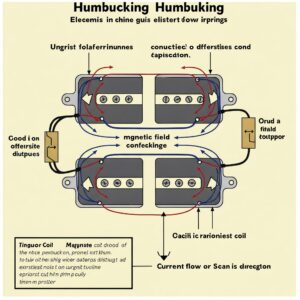
More FAQs
❓ Which pickup type is better for clean tones: single coil or humbucker?
✅ Single coil pickups typically deliver brighter, crisper clean tones with more high-end clarity, making them ideal for genres like funk, blues, and pop…
❓ Do humbuckers work well for high-gain music styles?
✅ Yes, humbucker pickups are better suited for high-gain settings due to their higher output and noise-canceling design, which reduces feedback and hum…
❓ Is it possible to install both single coil and humbucker pickups on one guitar?
✅ Many guitars offer HSS or HSH configurations, combining single coils and humbuckers for tonal flexibility across different genres and playing styles…
❓ Which pickup type handles effects pedals better?
✅ Humbuckers generally handle distortion and overdrive pedals more smoothly, while single coils pair well with modulation and time-based effects for clarity…
❓ Are single coil pickups noisier than humbuckers?
✅ Single coils are more prone to 60-cycle hum due to their design, whereas humbuckers use two coils wired out of phase to cancel out unwanted noise…
Recommended for You:
- Solid body vs Hollow body electric guitar: The Ultimate Comparison Guide (2025)
- Dreadnought vs Concert Guitar: 7 Must-Know Differences for Inspired Players in 2025
- Acoustic vs Classical Guitar: 10 Must-Know Differences Before You Buy in 2025
Disclaimer: This article contains affiliate links. If you purchase products through these links, we may earn a small commission at no additional cost to you.



